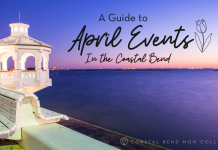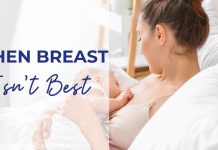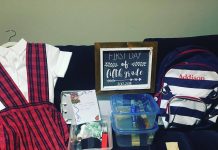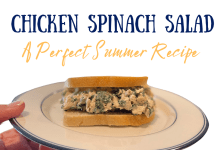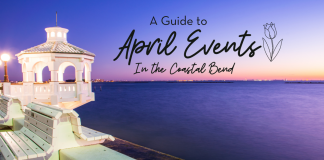Every year the ever-popular resolution to get “healthy” happens around New Year’s, or the First of the Month, or before that summer vaca. But what does getting healthy mean? Is it just focused on weight loss or does it include self-care and overall body wellness? Does it include staying more diligent in following through with annual check-ups with your general physician or getting back to nature with a holistic approach? More often than not, I’ve come to realize that when people hear the word “holistic” they tend to tune out of the conversation and label the person speaking as a “hippy” or too “woo woo.” However, is it that conventional medicine is easier than diet and exercise, so holistic care is dismissed? Stick with me. I’m not trying to convert you, and I’m not anti-vax, but I do believe some aspects of modern medicine are unnecessary. As a society, we are conditioned to know no other way than doctor’s offices, hospitals, and pharmacies. Natural self-care and holistic methods of healing chronic conditions have long been ignored, but after a life-changing diagnosis in June 2020, I have come to embrace natural methods and maintenance even more seriously and choose to live holistically whole.

Twenty-twenty was quite a snowball of learning experiences for me as it has been for so many of you. However, the most significant occurrence will be one I will carry with me for the rest of my life. In June, I was diagnosed with Multiple Sclerosis and decided from the start to reject pharmaceutical medication and begin my journey to reduce symptoms holistically. For much of my adult life I’ve worked towards being in tune with my body and avoiding medication when I can, and not as an influenced decision, but intuitive.
Since I was a teen, I had been on birth control, but around 2013-2014, I decided I was done with it along with other medication that was slowly starting to pile on more as preventative measures than actual necessity. I did not want to be on a multitude of medications, even if that meant I had to pay closer attention to my body’s signals and work harder to track them to stave off recurring symptoms. When I told my OB I was going off the birth control, he commented, “I guarantee you will be pregnant within three months.” Three years later, in 2017, my husband and I began trying and succeeded in getting pregnant. In the years preceding our planned pregnancy, we did not use any contraception other than the withdrawal method, and me having fertility awareness. I tracked my menstrual cycle monthly and noted discharge consistencies to gauge my fertility window and ovulation.
Up until my diagnosis last summer, that was the extent of my holistic practices. While I waited to hear my diagnosis after getting my MRI, I was already running through the fear of being on medication for the rest of my life, and my initial intention was to accept it and take what the doctor prescribed. However, I was already working with a health coach at the time for depression (who supported my choice to stay off anti-depressants), and she encouraged me to do my research on anti-inflammatory and auto-immune diets if I was hesitant about medication. I joined an MS group on Facebook that was geared towards eating naturally, read their posts both of triumph and despair and researched the plethora of anti-inflammatory diets targeted at those battling auto-immune diseases. I found that there was hope in claiming my diagnosis and not letting it take control of me. I will battle this on my terms as long as I can. When my neurologist confirmed MS, I informed him of my decision to stay off medication for now, but that I will reevaluate after some time if diet and movement are not working out. I have only been on this journey for six months, but I already feel better than I had pre-diagnosis. I began following the Paleo diet and eliminated gluten, dairy, soy, sugar, and grains. My migraines disappeared as well as some fatigue. I still battle with balance issues, but I will continue to live this lifestyle despite the comments I receive. “That’s no way to live.” “What do you eat? You’ve cut out everything.” “You can have one cheat, can’t you?” “I’ll die if I give up gluten.” The list goes on.
Now I realize holistic care is a lot of work, a lot of tracking, a lot of willpower, and a lot of discipline. In other words, it’s not an easy way out. Why change many aspects of your lifestyle when you can take a pill or injection for the rest of your life? And I do realize not every condition can be healed or managed without medication. Again, I am not discrediting modern medicine. But for most common ailments like chronic migraines, birth control or even other chronic diseases prevalent in the U.S., diet, and exercise are major players in healing as well as stress management. I know we’ve been drilled to understand that diet and exercise are always important. But aren’t we also trained to associate that most of the time with weight management? How often do we go into a doctor’s office dreading that the physician will comment on our weight? Considering just over 40% of Americans are classified as obese, I imagine many of us have experienced this sinking feeling. However, mass society is not taught to treat diet and exercise as an inflammation reducer or the master of getting supplements naturally. To be fair, most medical doctors are not trained in nutrition, but in pharmaceutical prescriptions. Either way, natural methods of self-care should be looked into further when determining the quality of life. What’s harder, a daily medication(s) and enduring their costs indefinitely or being more aware of your body and eliminating conveniences? Choose your hard.
If you’re interested in learning more about the power of diet, holistic methods, or pharmaceutical influence in healthcare, check out these documentaries:
- Living Proof on Amazon Prime
- Heal on Netflix
- Take Your Pills on Netflix
- The Business of Being Born on Amazon or YouTube


